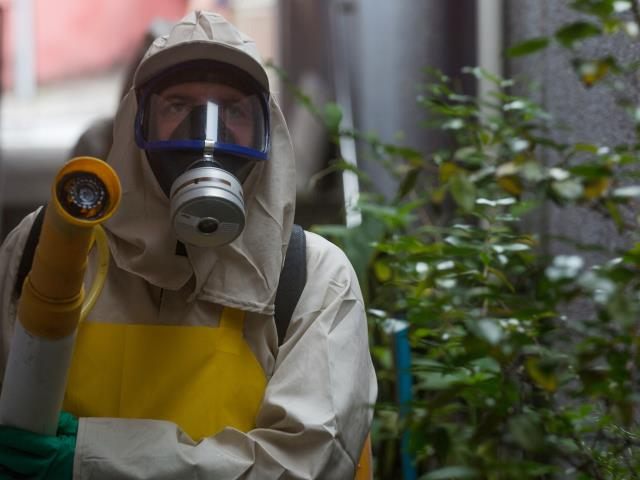The Texas Department of State Health Services (TDSHS) confirmed six travel-related cases of Zika virus in the state, as of late Friday, with four more cases suspected. Public health officials and medical providers are bracing for more cases, worried this could be the tip of the iceberg.
On Friday, Houston public health officials confirmed five Zika virus cases. Dr. Brian Arenare, Director of Disease Control and Clinical Prevention for Harris County Public Health and Environmental Sciences, commented on the challenges of formulating a preparedness plan for a virus with limited published scientific data, according to the Houston Chronicle. He said: “We’re faced with, before the bona fide mosquito season actually begins, having this important opportunity to plan what kinds of steps need to be in place now, so that we’re as far ahead of the curve as we can be.”
So far, all Texans with confirmed cases of Zika contracted the virus abroad and were diagnosed when they returned stateside says the state health agency. However, Dr. Peter Hotez, Dean of the National School of Tropical Medicine at Baylor College of Medicine, believes the Texas Gulf Coast could be “hardest hit” in a Zika outbreak, he told the Houston newspaper. The virus is carried by same two types of Aedes mosquitoes that carry Dengue fever, prevalent on the Texas-Mexico border, and Chikungunya, which first entered the state in 2014, with more cases last year, Breitbart Texas reported. These mosquitoes like to reproduce in standing water close to humans. Hotez cited Houston’s economically depressed areas as prime breeding grounds.
In North Texas, Dallas County health officials want to better prepare themselves in case of an outbreak by asking the Centers for Disease Control and Prevention (CDC) for approval to locally test in May, the start of mosquito season in the region when the virus could spread. On Jan. 26, Dallas County Health and Human Services Director Zachary Thompson told NBC DFW (KXAS) that the county is “taking the proactive step of seeking certification of our lab so that we can be able to do the test locally” and hopes the CDC will approve local testing by May. Presently, Dallas County sends suspect blood samples to Atlanta-based CDC for testing.
Dallas last faced a serious health threat in 2014 when a Liberian man, infected with the highly contagious Ebola virus, brought the first case of the deadly illness into the U.S. through Dallas, which Breitbart Texas covered extensively. It spread to two nurses treating the man. He later died, sparking a panic across the Dallas-Fort Worth metropolitan area, which remained on edge for months.
Breitbart Texas’ Lana Shadwick reported on Saturday that Bexar County health officials in San Antonio confirmed they tested six people for Zika virus, none of them were pregnant. They await results from the CDC. The San Antonio Metropolitan Health District does not want Bexar County residents to panic since there are no confirmed cases of native Texas mosquitoes carrying the Zika virus, which, according to Dr. Anil Magla, means that the virus is not spreading locally, and only exists in travel-related cases to affected regions.
Dr. Nikos Vasilakis is among the world’s leading experts on mosquito-borne illnesses at the University of Texas Medical Branch (UTMB) in Galveston. His team hopes to eventually develop a Zika virus vaccine. Previously, he called Brazil’s 3,000-plus cases in 2015 “the tip of the iceberg.” He told CBS-TV affiliate KHOU 11: “We need to find a way to control the spread.” Vasilakis fears U.S. government regulations could impede the process of developing a general population vaccine. He told the BBC: “What would take the longest time would be the process of passing it through the FDA and other regulatory agencies to allow it for public use and that may take up to 10 to 12 years.”
Breitbart News reported that medical experts warn the virus has “explosive” pandemic potential. The World Health Organization (WHO) estimated that up to four million cases of Zika may surface before a cure is found. Of greatest concern are pregnant women. Experts suspect a connection between Zika virus and serious birth defects. During Brazil’s 2015 Zika virus outbreak, incidences of microcephaly, a condition where babies are born with small heads and abnormally deformed brains, increased. The CDC advised pregnant women to avoid traveling to the 24 countries seeing high rates of the virus in Latin America and the Caribbean, including Puerto Rico and the U.S. Virgin Islands. Cases of Guillain-Barré syndrome, a rare paralysis disease, also increased during the 2014 French Polynesia Zika virus outbreak. Wednesday, the CDC suggested that Zika may lead to hearing and vision problems.
For now, the best way to combat the virus and avoid an outbreak is to eradicate mosquitoes by removing tires, plastic containers and other refuse from properties that can hold water and where Zika-infected mosquitos can breed, NBC DFW reported. Texas health officials also recommend wearing long sleeves, covering up, and using insect repellent. TDSHS advises to stay and sleep in screened-in or air-conditioned rooms and they encourage people, especially pregnant women, to follow the CDC’s travel precautions.
TDSHS says that most people exposed to the mosquito-borne illness, experience mild to no symptoms. The signs of the Zika virus are fever, rash, muscle and joint aches and even, pinkeye.
Follow Merrill Hope on Twitter @OutOfTheBoxMom.

COMMENTS
Please let us know if you're having issues with commenting.